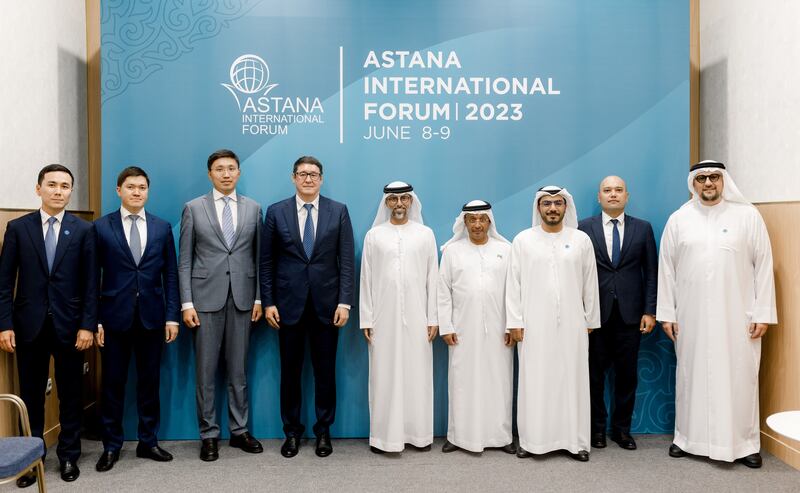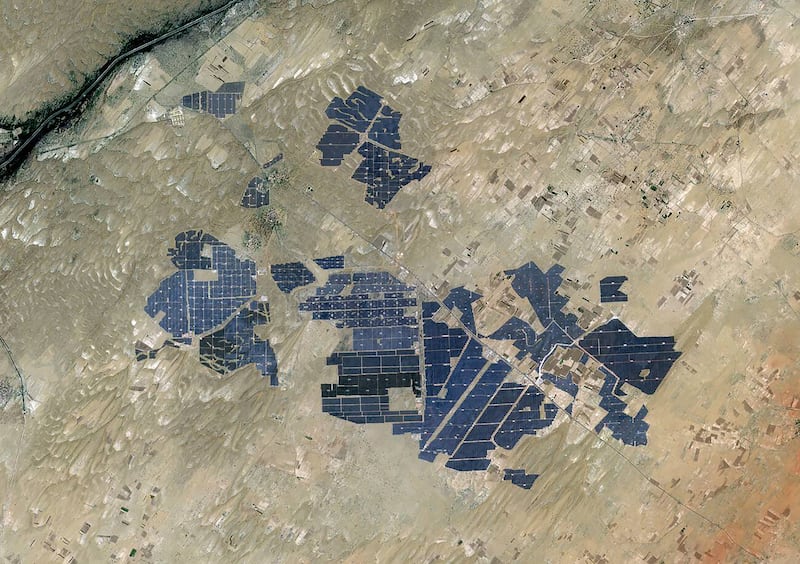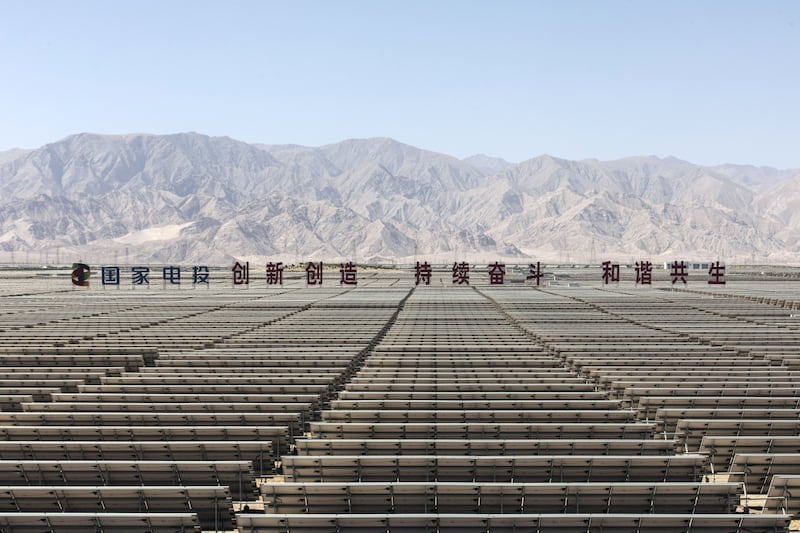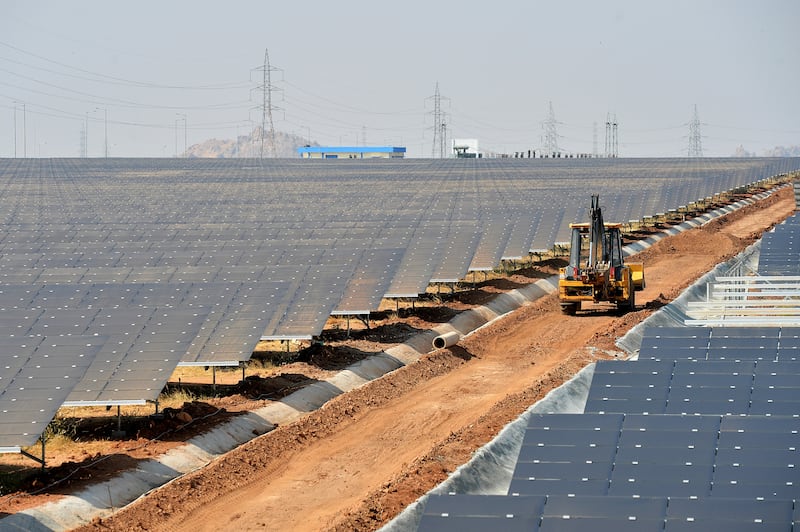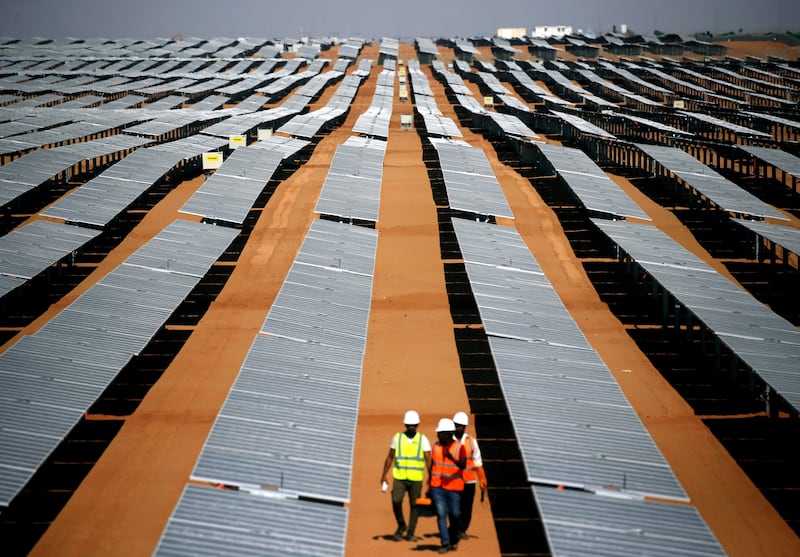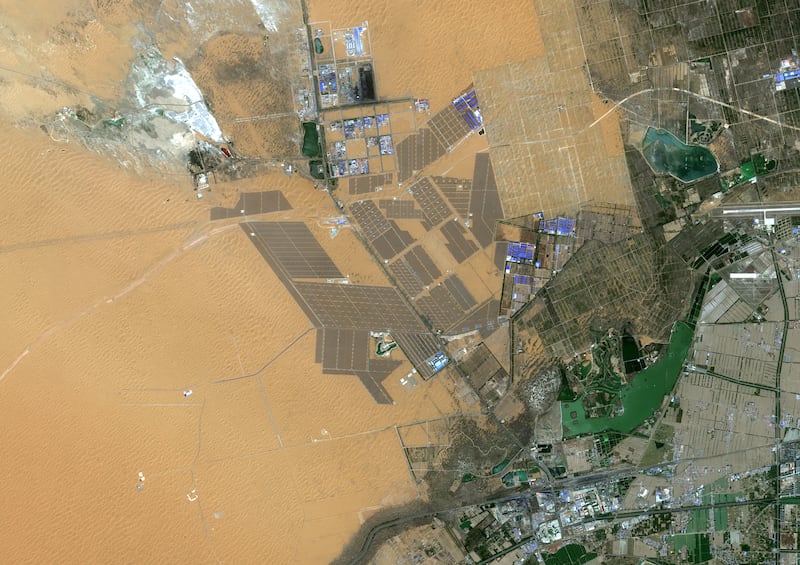Abu Dhabi’s clean energy company Masdar has advanced the development of a one-gigawatt wind power plant in Kazakhstan as the Central Asian country looks to boost the share of renewables in its energy mix.
The company signed an agreement with Kazakhstan’s Ministry of Energy, the Kazakhstan Investment Development Fund and the country’s sovereign wealth fund, Samruk-Kazyna, on the road map for the plant's construction, which will also include a battery storage system, Masdar said on Monday.
Masdar also signed a collaboration agreement with Samruk-Kazyna to explore further co-operation.
“The UAE and Masdar are proud to be supporting Kazakhstan’s renewable energy goals. This wind project, which will generate up to one gigawatt of clean electricity to power homes and cut emissions, shows sustainable development in action,” said Dr Sultan Al Jaber, Minister of Industry and Advanced Technology, and chairman of Masdar.
“To meet the Paris Agreement goals to keep 1.5 within reach, humanity needs to take many bold steps, including tripling worldwide renewable energy capacity by the end of this decade,” said Dr Al Jaber, who is also Cop28 President-designate.
Kazakhstan aims to become carbon neutral by 2060 and has set a renewable electricity generation target of 50 per cent by 2050.
An initial agreement was signed between Masdar and Kazakhstan during the Abu Dhabi Sustainability Week in January.
“We aim to deliver a world-class wind plant and battery energy storage system that will support Kazakhstan’s energy transition and advancement of its net zero ambitions,” said Masdar chief executive Mohamed Al Ramahi.
“We welcome the signing of the project road map, which further strengthens our relationship with Kazakhstan and demonstrates our commitment to helping the Kazakh government achieve its clean energy objectives,” he said.
Central Asia is a key market for Masdar, which aims to grow its total renewable energy capacity to at least 100 gigawatts by 2030.
Last month, the company signed a joint development agreement with Uzbekistan’s Ministry of Energy and Ministry of Investments, Industry and Trade to develop more than two gigawatts of solar and wind projects in the country.
Masdar, which nearly doubled its clean energy capacity to 20 gigawatts in two years, has been active in Uzbekistan since 2019, with the 100-megawatt Nur Navoi solar project – the nation’s first successfully financed independent solar project.
Earlier this year, the company opened an office in Azerbaijan's capital Baku and pledged to strengthen its support for the country’s renewable energy programme.
In January, Masdar signed agreements with Azerbaijan’s state oil company Socar to develop renewable energy projects with a total capacity of four gigawatts.
Established by Mubadala in 2006, Masdar has taken a leadership role in the global clean energy sector and has also helped to drive the nation’s economic diversification and climate action agenda.
It is currently active in more than 40 countries and has invested or committed to invest in projects worth more than $30 billion.
“We are pleased to note the progress of the project … with the first phase to be developed in the Jambyl region. This is a significant step forward in developing the joint implementation of Masdar’s first wind project in our country,” said Marat Tulebaev, chief executive of the Kazakhstan Investment Development Fund.
“We look forward to strengthening our partnership in the future and believe that this project meets our country's growing demand for electricity.”
Global investments in energy transition technology must quadruple to $35 trillion by 2030 to stay in line with commitments made under the Paris climate agreement, according to the International Renewable Energy Agency.
